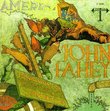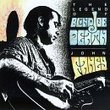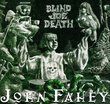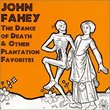| All Artists: John Fahey Title: Days Have Gone By Members Wishing: 4 Total Copies: 0 Label: Takoma Release Date: 8/7/2001 Genres: Country, Blues, Folk, Jazz, Pop Styles: Contemporary Blues, Traditional Blues, Traditional Folk, Contemporary Folk, Traditional Jazz & Ragtime Number of Discs: 1 SwapaCD Credits: 1 UPC: 025218650922 |
Search - John Fahey :: Days Have Gone By
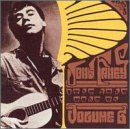 | John Fahey Days Have Gone By Genres: Country, Blues, Folk, Jazz, Pop
Digitally Remastered Reissue of the Classic 1967 Album by the Late Enigmatic Acoustic Guitar Legend. |
Larger Image |
CD DetailsSynopsis
Album Details Digitally Remastered Reissue of the Classic 1967 Album by the Late Enigmatic Acoustic Guitar Legend. Similar CDs
|
CD ReviewsFahey's best recording Dr Tathata | Omphalos, USA | 12/14/2003 (5 out of 5 stars) "I love this album. It is one of my favorite recordings of all time. When I had the lp, which I acquired from a little record store in Takoma Park two doors down from the gas station were Fahey used to pump gas as a teenager and sell his own pressed copies of his first recording, Blind Joe Death--I literally wore it out. By that time, his recordings were out of print, and I had to wait decades for a re-release on CD. Oh happy day! He achieved his creative zenith with this recording, and moved off in different directions, never as compelling as his earlier work. Night Train to Valhalla, The Portland Cement Factory, and others are so fully realized that it is as if he is speaking a long forgotten language, his guitar lines forming complete sentences. I last saw him perform in 1977, at the Cellar Door, and he came on stage wordlessly, sat, assumed a posture not unlike a Picasso painting, and played guitar for the next two hours without ever pausing or stopping. Hypnotic. Trance inducing. His Raga named Pat saga continues, as well. A fascinating concept to draw out a piece of music, like a Triptych, across many recordings. A must have. At the time this recording was released, one could never have imagined the sad manner in which his story would end." THIS is Fahey at his very best. Chris | NM USA | 12/19/2001 (5 out of 5 stars) "After having heard most every other Fahey recording out there, including the epic "America", "Volume IV", "The Voice of the Turtle", and his first record, I thought I had heard the very best of John Fahey's output. "Days Have Gone By", in my view, surpasses all of those, and it's Fahey's most personal and most beautiful work. This record, first issued on Takoma in 1967, is unique in Fahey's repetoire for its gorgeous use of reverb, as well as for the subtle harmonic details evoked from Fahey's guitar. On "Days Have Gone By", Fahey created a landscape of sounds simultaneously intimate and vast, incorporating at points train calls and various abstract sampled sounds (sort of akin to what he did on "Requia", but more understated), and at others dipping into the eastern-tinged playing more familiar to "Fare Forward Voyagers". At the bottom of all of this is, of course, Fahey's fantastic blend of classical technique and love of blues/folk/mountain music, played not so much with the pyrotechnical fervor that can be found on some of Fahey's recordings as with the subdued charm of a guitarist quietly possessed. This may be thought of as "otherworldly" music to some, but I think of "Days Have Gone By" as a kind of testament to the beauty and mystery of this life, and I'm delighted to see it's been reissued for everybody to experience." Beautiful Chris | 12/16/2003 (5 out of 5 stars) "This is my favorite album of all time. I have never heard more beautiful or haunting music. I heard this album for the first time when I was five, and I must have heard it a thousand times since then, but it continues to be fascinating. My dad once said that this is the music you would hear after the world ended. And he's right. Fahey's music sounds organic, like it came from the earth, not from the hands or mind of a person."
|

 Track Listings (11) - Disc #1
Track Listings (11) - Disc #1